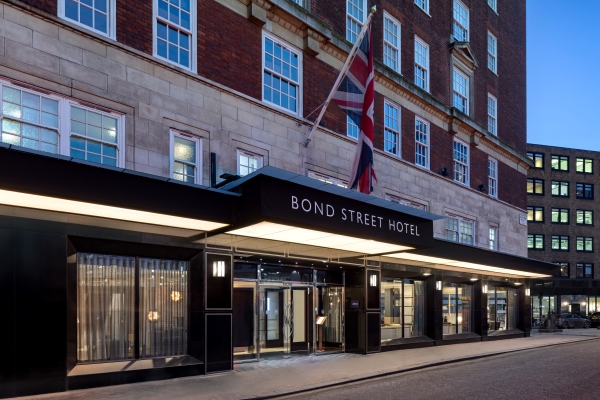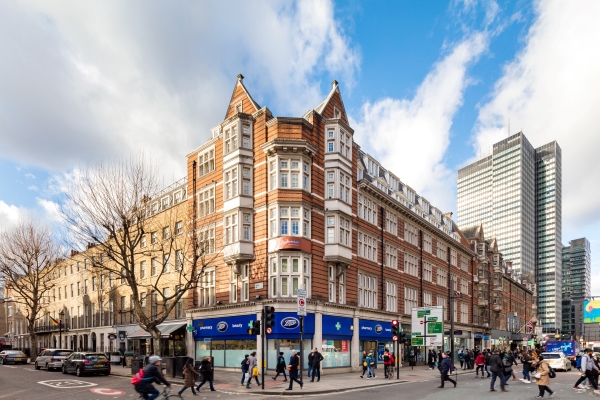The scrapped merger between Choice Hotels International and Wyndham Hotels & Resorts underscored the rather dark dynamics of M&A. In Europe, there is a brighter, albeit tempered transactions outlook, with hoteliers, private equity and other investors optimistic about getting deals done.
“Lots of deals are happening or have happened, which all appears to bode well for a more animated 2024,” said Philip Camble, director of U.K.-based hospitality consultancy Whitebridge Hospitality. The 40-year industry veteran noted, however, many of the deals “had long gestation periods” ahead of finally closing.
According to this year’s HVS European Hotel Valuation Index, although hotel investment volume reached €10.7 billion, there were 17 fewer transactions in 2023 than in 2022, causing a 19% year-over-year decrease in volume. Single-asset transaction volume decreased by 17%, while portfolio transaction volume slumped 24% last year, HVS data show. France and Spain were the market leaders, accounting for 44% of the total European volume.

U.K. MOVES
As 2024 unspools, there’s a mix of perspectives on how robust transaction activity will be given various market conditions across a wide swath of countries, although the skew is more positive than not.
“We witnessed a robust pick-up in the back end of 2023 and this [translated] into a number of significant asset and portfolio transactions in Q1 and Q2 of this year, which illustrates some green shoots in terms of investment-market recovery and significant signs that 2024 will provide a more-positive capital market environment,” said Marc Nelson, EVP, hotels for JLL. “Investors are broad, from private equity, sovereign wealth and even tenant buy backs. The key difference is that investors appear to be risk-on, taking a view on the movement of swap rates and general recovery. One could be hopeful in saying we are at or near the bottom of the cycle.”
Earlier this year, JLL was involved in one of the hospitality industry’s more high-profile deals, largely due to the buyer, providing real estate advisory services to Edwardian Group in its sale of 10 Radisson Blu properties to an affiliate of U.S.-based Starwood Capital Group for an undisclosed price.
The private investment firm, led by Chairman & CEO Barry Sternlicht, scooped up the U.K.-based portfolio representing 2,053 rooms and the bulk of Edwardian Group’s hotel assets, leaving it with three properties: The Londoner and a pair of Radisson Collection hotels, The Edwardian Manchester and The May Fair.
Camble indicated that the deal was a great pacesetter for the year and demonstrated the “incredible appeal of London” to international investors. “We foresee many more deals in London in the coming 12 months, but [we’re] unlikely to see more portfolio transactions,” he said.
That said, Starwood Capital Group, in March, dropped another interesting piece of business strategy, letting observers know it was seeking to combine affiliated investment entities that own interests in the U.K.’s De Vere hotel portfolio, as well as its New York City 1 Hotels assets, with one of its special purpose acquisition companies (SPAC), Jaws Mustang Acquisition Corp., in order to create a listed public company.
If and when the non-binding letter of intent morphs into a definitive agreement that yields the hoped-for transaction, the eight U.K. assets would include sprawling, Downton Abbey-worthy, luxury-tier properties, such as De Vere Tortworth Court in the Cotswolds or the more contemporary lakeside hotel, De Vere Cotswold Water Park. The portfolio represents 1,871 keys. The U.S. properties would be the 234-room 1 Hotel Central Park and the 195-room 1 Hotel Brooklyn Bridge in New York City.
It was a decade ago that Starwood Capital Group acquired De Vere Venues, a conference center and hotel operator, along with management and franchise contracts, for $385 million from De Vere Group. Several of those assets are in the current De Vere portfolio.

OFF THE ISLAND
Camble also noted upper tier hotels had been selling in France and Spain, as well.
Among such deals as cited by HVS was the four-star Hotel Dame des Arts in Paris. The 109-key property was the first acquisition in Europe for South Korea-based Sono Hotels & Resorts, whose Sono Hospitality BV acquired the property for approximately €120 million from fund TPG Angelo Gordon and investment platform EQ Group, which will continue to operate the asset.
In Spain, Seville’s Visasure acquired the four-star Hotel Merida Medea Affiliated by Meliá in Badajoz, one of 17 hotels acquired last year by the seller, Abu Dhabi Equity Real Estate (ADIA). It’s anticipated the 126-key hotel will be run by AZZ Hotels (Visasur’s operator) and ultimately be rebranded as AZZ Meridea Medea, according to HVS. The acquisition price was not disclosed.
Similarly, Spanish holding company Grupo Fuertes, together with Canary Island developer/ operator Satocan, acquired the four-star Hotel Tenerife Golf & Sea View from an undisclosed seller. The asset joined the 1,200-room Marina d’Or Resort in Oropesa del Mar, Spain, which Grupo Fuertes acquired this past November. In terms of an exemplary disposition, HVS noted Spain-based REIT Millenium Hospitality Real Estate sold the Hotel Eurostars Lucentum for €29.9 million to an undisclosed buyer. The REIT had acquired the 169-key asset in Alicante in 2018.
“Spain has dominated the transaction landscape by total value of deals done these last three years and I suspect it may well top our [top performer] table again come January 2025,” said Whitebridge’s Camble. “I foresee regional U.K. picking up and featuring in the top three again, perhaps joined by London, on the back of a great start to the year and because operating margins in London are so much better than in many other destinations.”
Transactional activity has also been cited by HVS in Germany, Italy, Poland, Portugal, Scotland, Sweden, Switzerland and the Czech Republic.
Camble added headwinds for the European hotel transactions market are likely to stem from financing complexities and lack of “reasonably priced” stock.
“Financing has been robust with our debt-origination teams enjoying strong engagement from reputable lenders,” said JLL’s Nelson. “The variable that has caused challenges is down to swap rates and the volatility, which is having an impact on returns and cost of borrowing. This is a good barometer on the state of investor confidence and the macro-environment. While there have been threats of recession, it appears that we are en route to a soft landing based off recent indicators.”

CHANGING HANDS
In its 2024 European Outlook, CBRE noted that while interest rate increases last year negatively impacted hotel investment volume across numerous markets, hotel transactions are expected “to gradually pick up in 2024 [with] investment activity likely to be backloaded in the second half of the year after investors obtain clearer insight into interest rate movements.”
In terms of the type of assets most likely to trade, Camble suggested “weaker full-service hotels will be most frequently traded… select-service and luxury hotel owners tend to be well funded and able to ride out any storm.”
“Key themes that have resonated over recent years will continue into 2024: prime urban gateway markets will continue to enjoy strong investor demand and the middle is going to be squeezed. Investors are being lured to three camps—luxury, limited service or lifestyle,” said Nelson.
He added with the sharp rise in interest rates and with pension funds facing redemption pressures or maturity in defined benefit schemes, there are likely to be more buying opportunities in the leased market. These could present “some interesting buying opportunities,” he said. “Debt pressures also are still going to persist with some investors facing refinancing risk, which will result in additional transactions over the next year as well.”
From Camble’s perspective, the buyer profile in 2023 “was less about private equity and REITs and much more about sovereign wealth and some active high net worths. Already this year, [we’ve seen] private equity returning in a big way, so 2024 could look very different to last year.”
Nelson is enthusiastic it will be different. “Just based on the investment deals that have been announced and going to be announced in the coming months, 2024 is going to be dramatically better than this time last year. Given the robust occupational trading environment, pricing for hotels subject to management agreements have been generally insulated by the rise in cap rates; however, assets subject to leases have been impacted,” he said.
Despite a more positive outlook, Camble acknowledged headwinds remain and impact deal flows, “especially where higher interest rates and cap rates are not being reflected in any price corrections by sellers and their funders.”
According to CBRE, better operating fundamentals could likely improve some hotel owners’ confidence, “making them reluctant to lower asking prices… at the same time, investors are expected to maintain a more patient yet active stance, guided by the expectation that easing inflation will eventually lead to lower financing costs.”
And optimism and confidence may continue to spread across the industry’s denizens as 2024 heads into the second half, as well.
“With the anticipated improvement in the interest rate and bond markets, there seems to be upside optimism, [although] this greatly depends on EBITDAR (earnings before interest, taxes, depreciation, amortization and restructuring or rent costs) performance in light of cost pressures still persisting and further growth coming through the P&L,” said JLL’s Nelson. “Overall, there will be optimism in terms of easing inflationary pressures and improvement in capital markets. We are seeing private equity investors become more risk-on, which is giving the market confidence.”
And just who might be whipping out a check book? Whitebridge’s Camble suggested as interest from private equity picks up, “U.S. investors are likely to grab a larger share of the market since 2021. European buyers will retain the highest market share, but the Middle East is likely to give Europe a run for the top spot again in 2024 as they seek to acquire more stakes in quality hotel companies on the back of diversifying their sovereign wealth portfolios and driving economic diversification at home.”
Story contributed by Stefani C. O’Connor.
